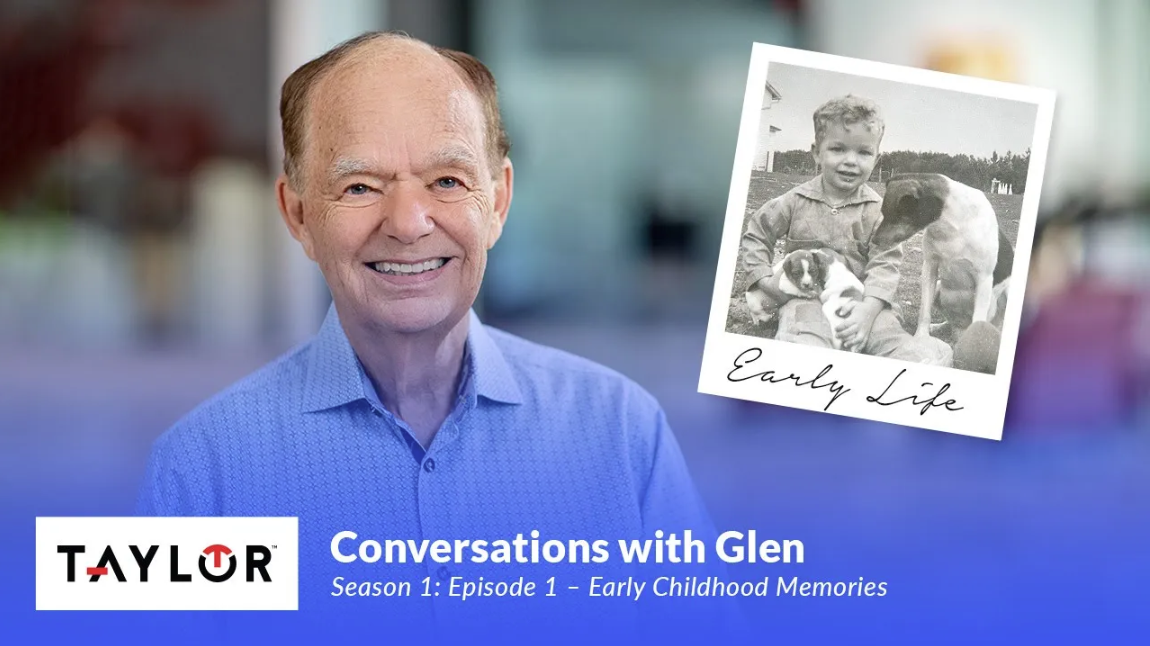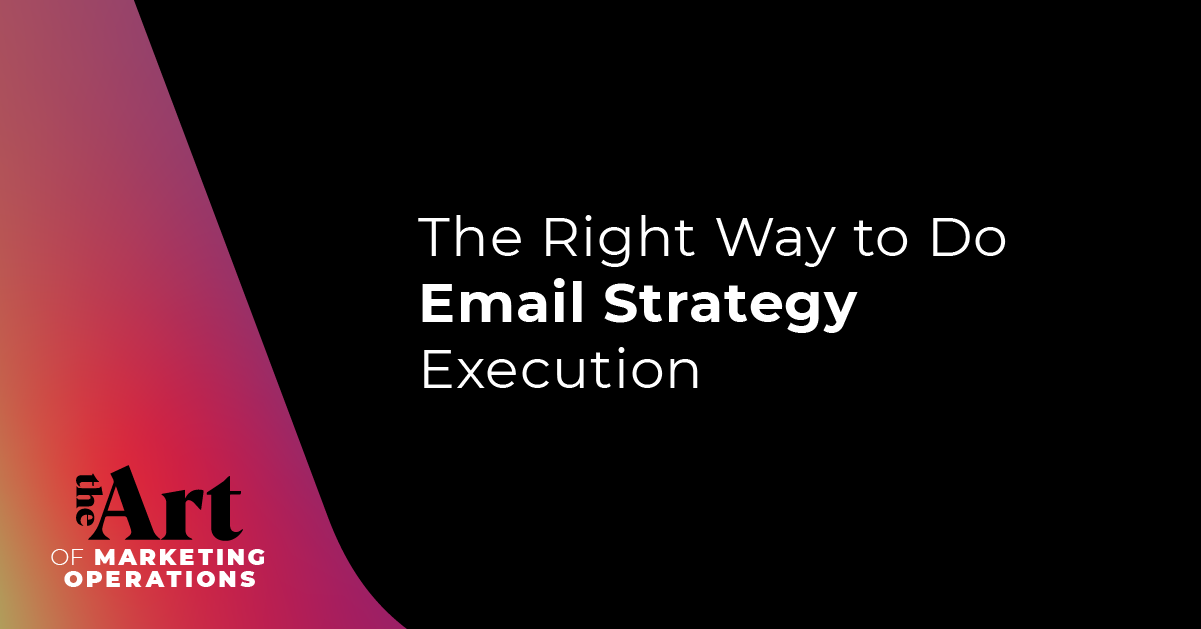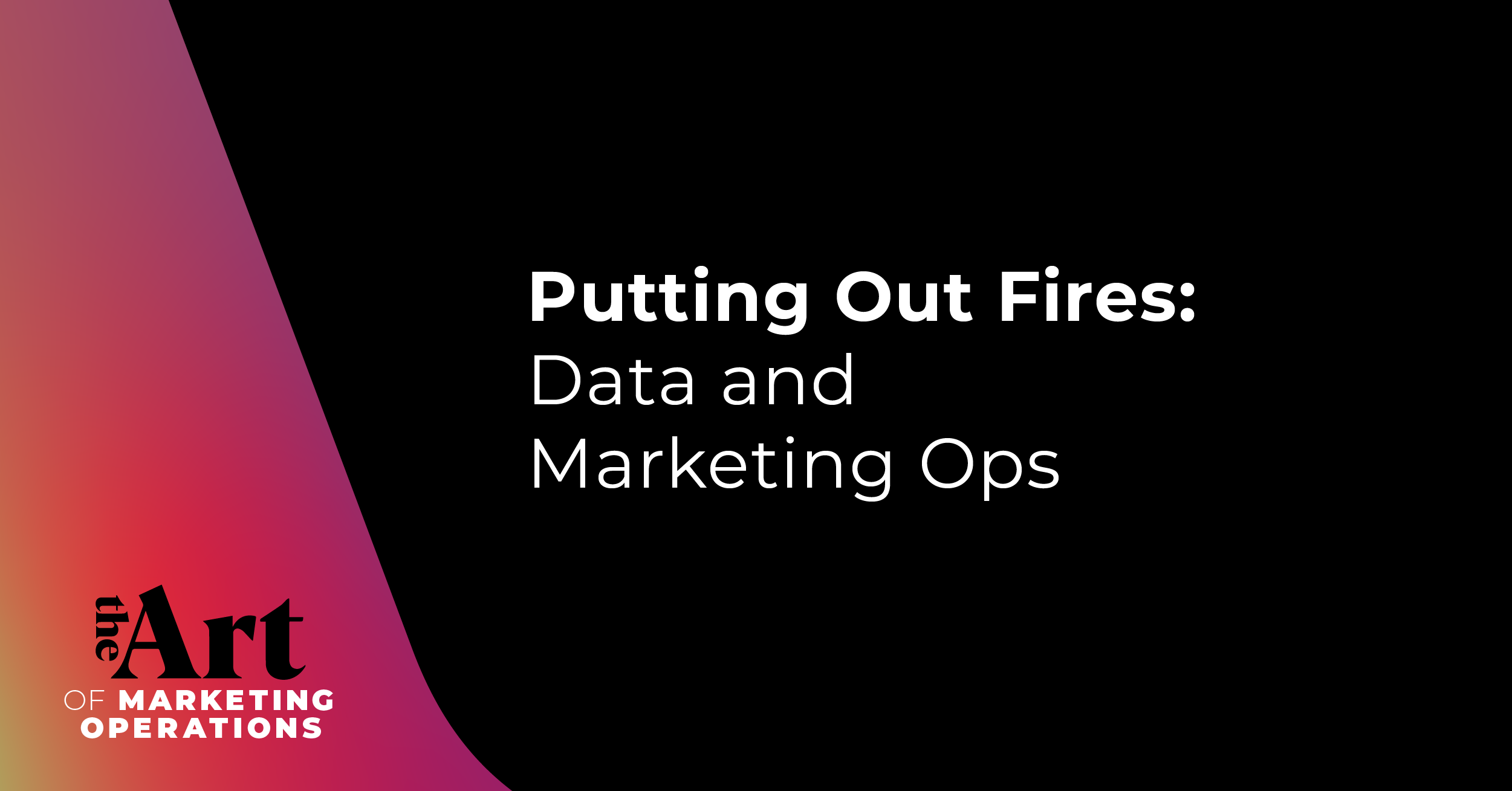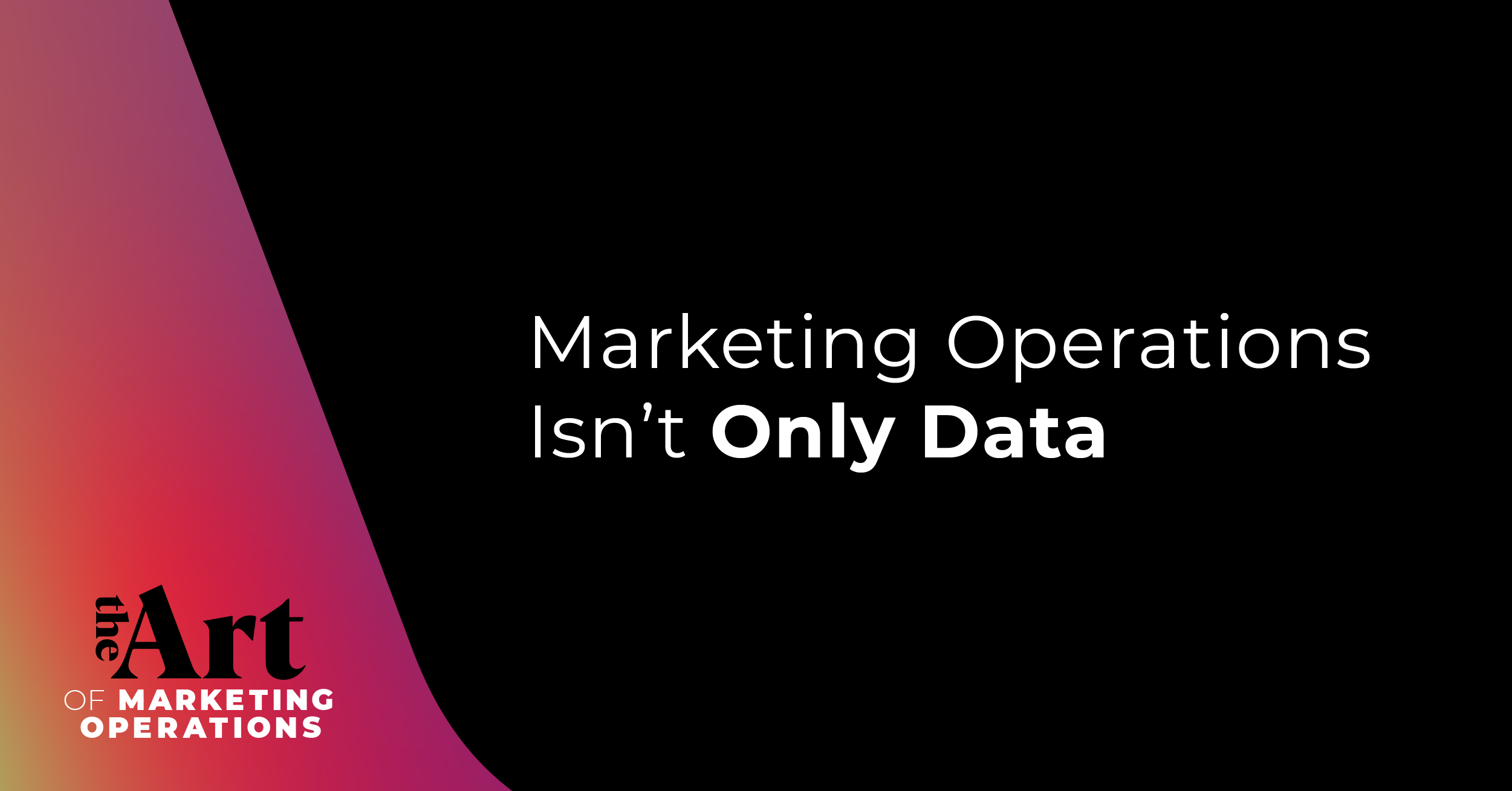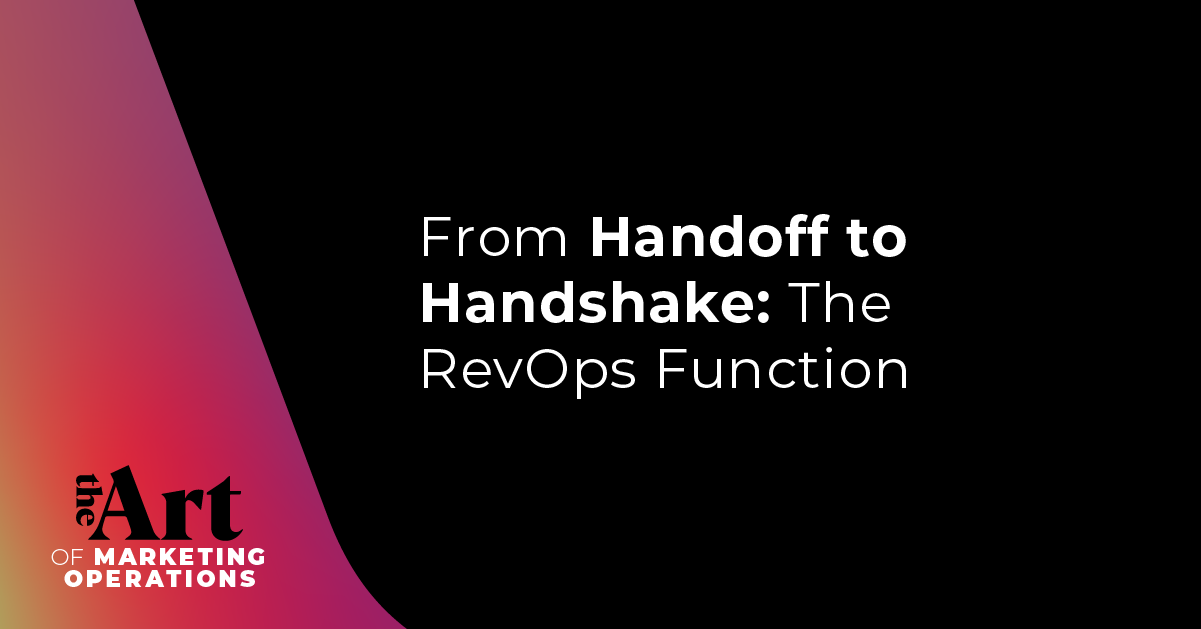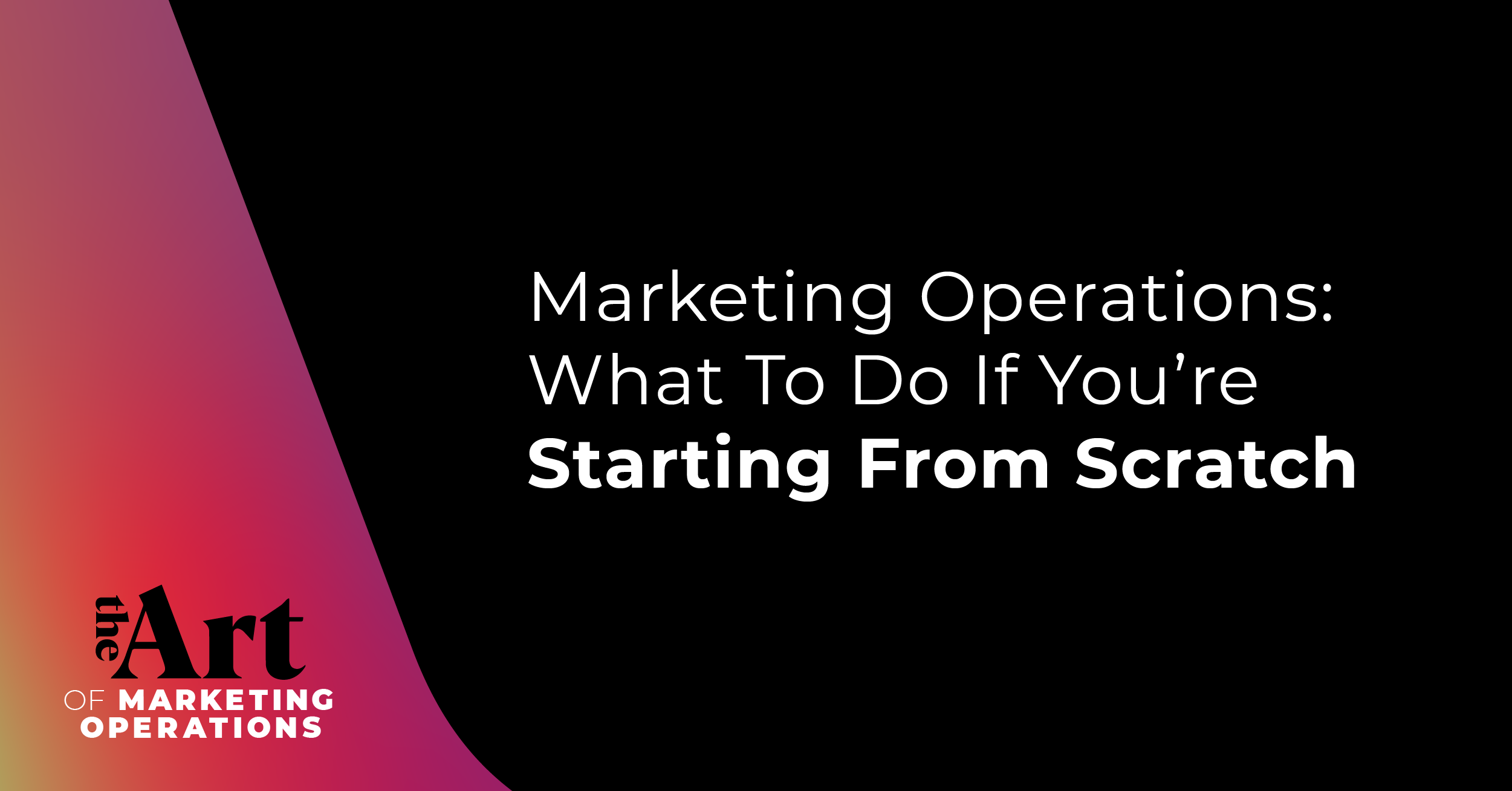What if your manager took the time to learn your strengths, goals, and work ethic?
Even better, what if they valued those specifics and helped you leverage your strengths to achieve your goals and support that work ethic?
When someone feels heard and understood in their work, the results speak for themselves; better systems, relevant KPIs, and increased productivity.
In this episode, I interview Joy Martinez, Director, Marketing Operations at Waystar, and Brian Morris, Marketing Operations Manager at Waystar, about the ever-relevant objective of humanizing the workplace.
Join us as we discuss:
- Telling a story with data
- Staying curious (and why curiosity doesn’t equal mistrust)
- Advocating for operational support
- Leveraging strengths in teams
Let’s explore the ins and outs of utilizing curiosity in the workplace.
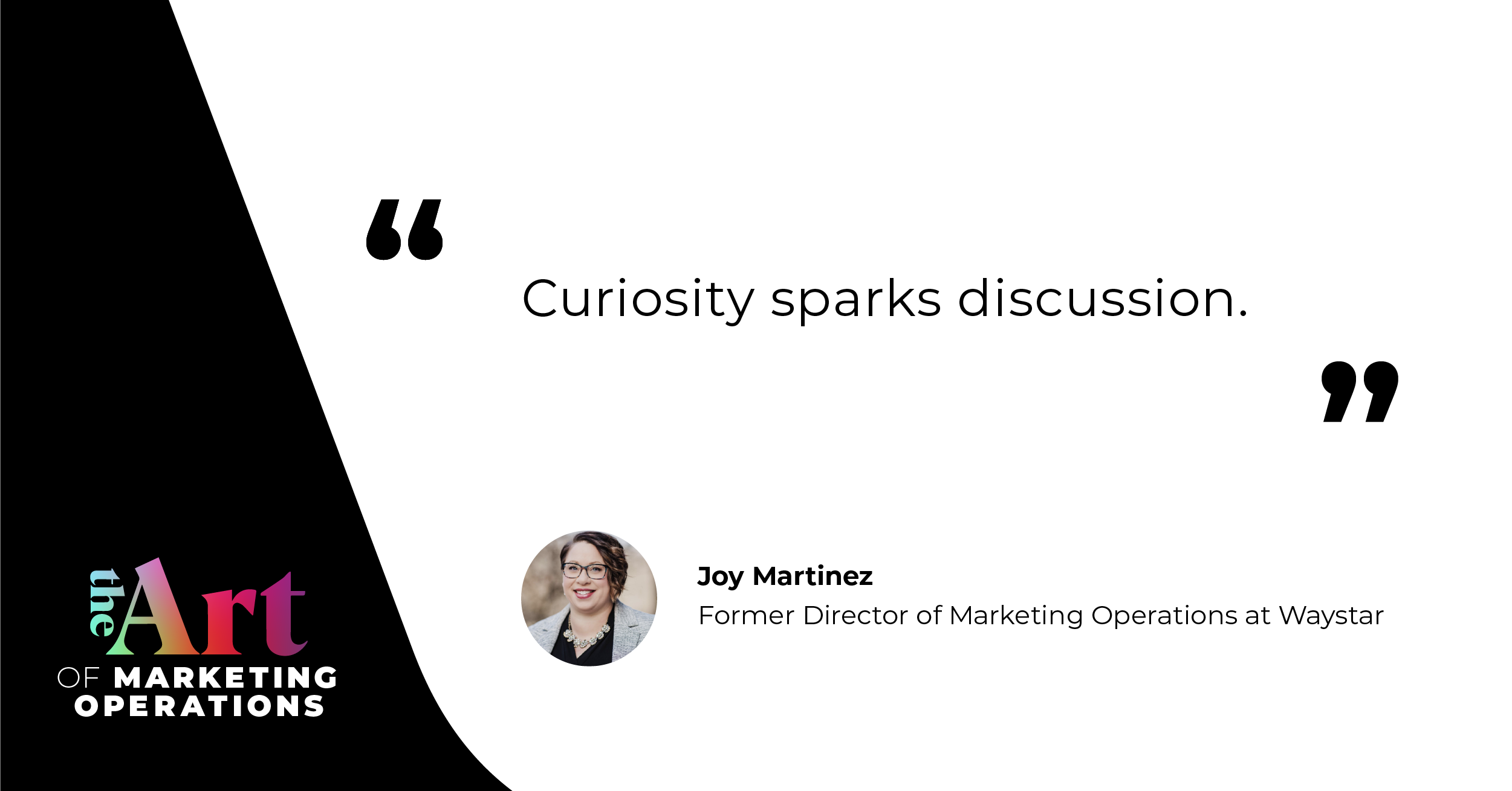
“Curiosity sparks discussion.” — Joy Martinez
Staying Curious (and why curiosity doesn’t equal mistrust)
The art of curiosity can be a tricky tightrope in the workplace. Even so, Joy advocates asking your teammates questions and learning more about other departments.
“Asking questions and just being curious creates better alignment between teams and working cross-functionally, understanding what other people do,” she said.
Gaining this type of clarity can improve expectations around asking for assistance or a favor—something that may seem easy for one person actually takes a lot of time, or the ask itself doesn't make sense for the location of that teammate departmentally.
“Build trust and show appreciation around what they're asking for, but also be able to form more scalable solutions for the company.”
Having a clearer picture of what everyone is working on and what their workflows look like can help build those foundational elements for lead generation and the like.
“There's a right way and a wrong way of going about curiosity. It's not so much pushing back and being like, “Well, why are we doing this?” And “this doesn't make sense.” It's not that.” Joy clarified.
Here are a few examples of curiosity done well:
1 - “I’m trying to understand—can you explain more about what you were thinking here?”
This works if you’re unsure about how to address a confusing directive.
2 - “What is your end goal?”
It doesn't hurt to clarify the objective for new workflows, tools, and systems. Approaching with curiosity softens the potential for ruffled feathers.
3 - “How do you want this to be reported?”
There are many different ways to deliver data—make sure you’re clear on what type of optimization is required to meet those expectations.
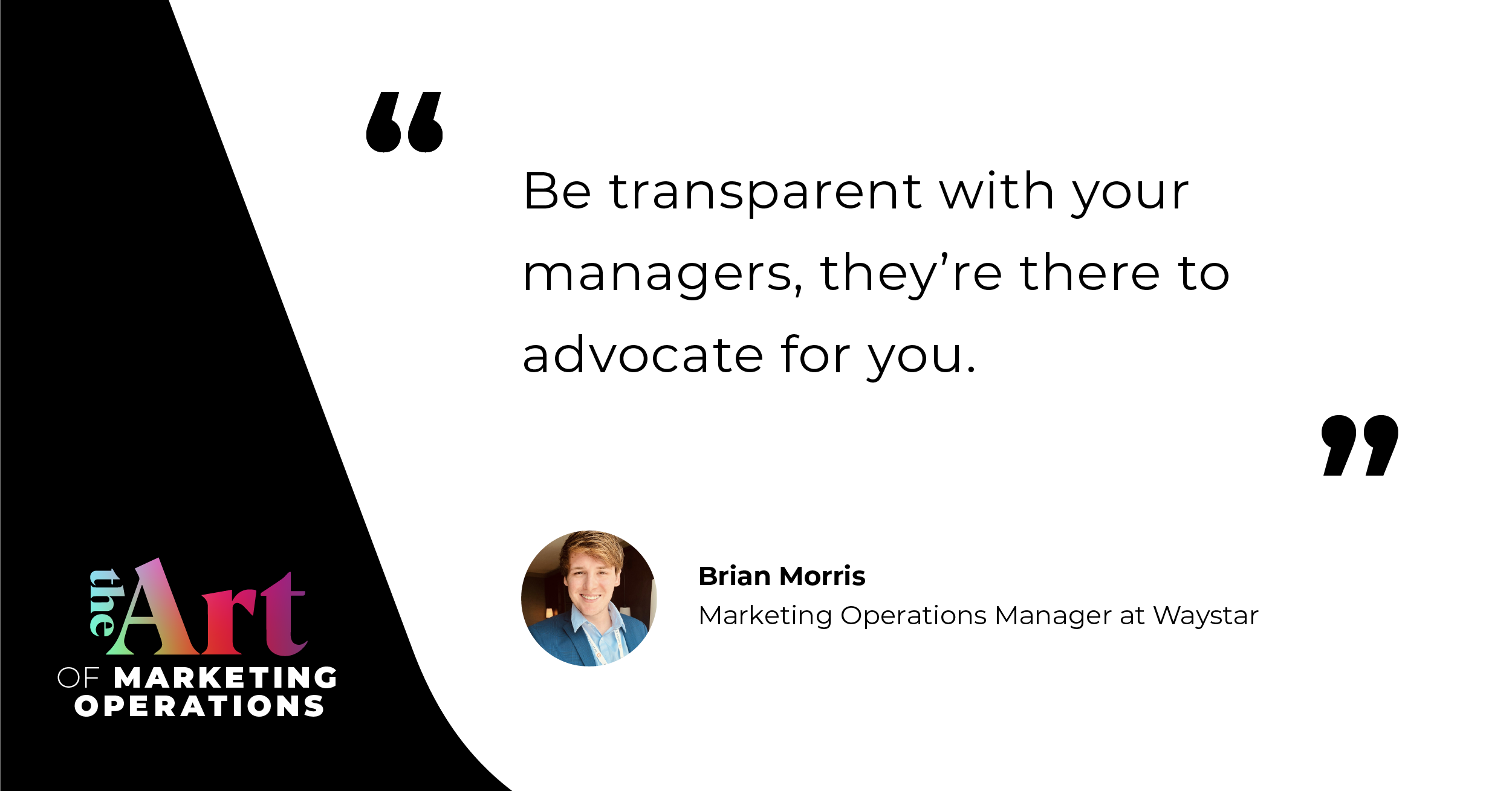
“Be transparent with your managers, they're there to advocate for you.” — Brian Morris
Advocating for Operational Support
It’s tempting to keep your head down and push through struggles without bringing it to your manager's attention—but that’s not noble. It can be damaging.
“If they don't know you're overwhelmed with work or the timelines are being pushed out, it'd be hard to gain that further traction towards getting a new hire in place.” Brian explained.
“Be curious about the vision and the goals of the company, know that they have a goal to, let's say, double the amount of webinars they want to hold in a quarter, or looking to implement a new ABM tool to the ABM strategy,” Brian continued, “Those are all things that are going to add to your existing workload and, of course, are going to require additional resources.”
Advocating for operational support means recognizing when you’re overwhelmed and speaking up about it. Keep a pulse on the direction and volume of projects on the horizon and adjust accordingly. Be open with your managers about what you need to succeed.
“For an example,” said Brian, “if you average 10 tickets a month for various troubleshooting reporting requests, if it starts to double to 20 tickets a month, it may require additional resources to support those requests.”
Hard data can support your case for aid or workflow adjustments.
“We found that having that tangible proof through that ticketing system, it shows how much work is really coming our way. And we can use that to show leadership that we need additional headcount to execute that work.” Brian explained.
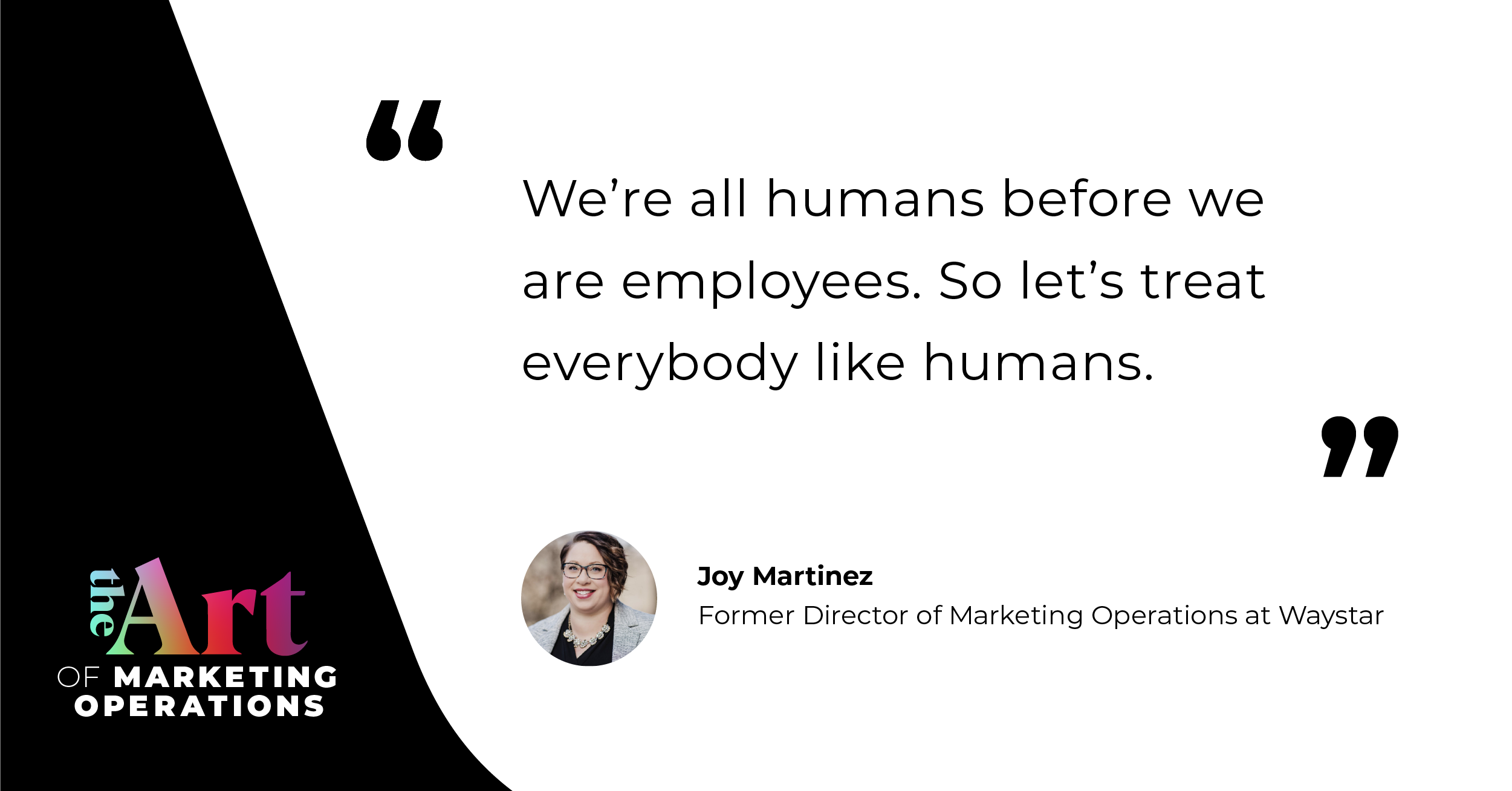
“We're all humans before we are employees. So let's treat everybody like humans.”— Joy Martinez
Leveraging Strengths in Teams
We all have intrinsic strengths and weaknesses that can be developed and conquered. From school to the workplace, they follow us—it’s only right that we learn how to leverage our strengths for the better.
“Talents are something that we have innately in us, it's what we naturally think, feel, behave, do, at work,” Joy said, reflecting on her previous strength coaching company.
“But in order to really become a strength, you need to gain knowledge, you have to develop your skills, and you have to make an investment of time to really develop that talent so that you can work productively in it, versus under using or overusing your talents,” she continued.
How do you determine the talents of yourself and your team? Joy recommended a few tests and assessments worth trying out:
- DiSC Assessment
- Myers Briggs
- Clifton Strengths Assessments (Joy’s favorite!)
Don’t worry—these are fun tests. No trigonometry should be required.
“I'm not really looking at it as like a personality process assessment, I'm really looking at it from wanting to know inside, deep down, how this person naturally thinks and feels and works.” Joy explained.
There doesn’t have to be a fancy test. Sometimes the best way to learn about someone is through simple conversation. Again, leveraging natural curiosity in an appropriate way.
A few suggested prompts from Joy:
- What lights you up?
- What energizes you?
- What motivates you?
- What are the types of things you like working on?
If they don't know, ask them what people have complimented them on, what traits or skills they’re known to excel at—that may help get the gears turning. You can even ask yourself those questions, too.
Leveraging strengths, banking into curiosity, and being transparent with leadership are great ways to grow a team and improve operations.
Get out there and embrace the humanity in the workforce!



